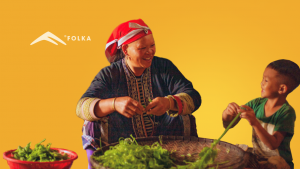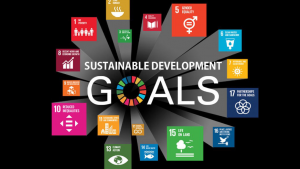Community volunteer programs can provide many benefits, both to the individuals and communities involved.
For individuals, participating in a community volunteer program can be a meaningful and rewarding experience. It can allow you to make a positive impact on the lives of others and contribute to the betterment of your community. It can also provide an opportunity to learn new skills, meet new people, and gain a sense of accomplishment and purpose.
For the community, volunteer programs can provide a range of benefits. They can help to address important social and economic issues, such as poverty, education, and healthcare. They can also help to build a sense of community and bring people together to work towards a common goal. In addition, volunteer programs can provide valuable support to community organizations and help to strengthen the social fabric of the community.
How to do community volunteer program while traveling to new places
If you are interested in participating in a community volunteer program while traveling to new places, there are a few steps you can take to make it a rewarding and meaningful experience:
1.Research your destination: Before you travel, research the community or region you will be visiting to learn about the local needs and issues. This will help you find a volunteer program that aligns with your interests and skills and that will have a positive impact on the community.
2.Find a reputable organization: Look for a reputable organization or non-profit that is well-established and has a track record of success in the community. This will ensure that your time and efforts are well-utilized and that you are making a positive impact.
3.Consider your skills and interests: Think about your skills and interests and how they might be put to use in a volunteer program. This will help you find a program that is meaningful and enjoyable for you.
4.Communicate with the organization: Before you travel, make sure to communicate with the organization to discuss your availability, expectations, and any other logistical considerations. This will help to ensure that your volunteer experience is well-planned and successful.
Be open to new experiences: Remember that volunteering in a new place can be a learning opportunity, and be open to new experiences and ways of doing things. This will help you make the most of your volunteer experience and contribute to the community in a meaningful way.
Benefits for the rural community

Community volunteer programs can provide a range of benefits for rural communities, including:
1.Support for community organizations: Volunteer programs can provide valuable support to community organizations, such as schools, churches, and non-profits, by providing additional manpower and resources to help them achieve their goals.
2.Improved access to services: Volunteer programs can help to improve access to essential services, such as healthcare, education, and social services, for disadvantaged or underserved communities.
3.Economic development: Volunteer programs can support economic development by providing employment and training opportunities, supporting small businesses, and promoting entrepreneurship and innovation.
4.Social cohesion: Volunteer programs can help to build a sense of community and bring people together to work towards a common goal, strengthening the social fabric of the community.
5.Environmental protection: Volunteer programs can support environmental protection by promoting sustainable practices, supporting the conservation of natural resources, and advocating for environmentally-friendly policies and practices.
Benefits for corporates to spend and participate in these initiatives
There are several benefits for corporations to invest in and participate in community volunteer programs:
1.Employee engagement: Participating in volunteer programs can help to engage and motivate employees, as it provides an opportunity for them to contribute to the community and make a positive impact.
2.Team building: Volunteer programs can provide an opportunity for employees to work together towards a common goal, which can help to build teamwork and strengthen relationships within the organization.
3.Corporate social responsibility: Participating in volunteer programs demonstrates a commitment to corporate social responsibility and can help to enhance the company’s reputation and relationships with stakeholders.
4.Community involvement: Volunteering in the community helps to build a sense of corporate citizenship and shows that the company is invested in the well-being of the community.
5.Employee development: Volunteer programs can provide employees with valuable skills and experiences that can help to enhance their personal and professional development.
How you can contribute to your planet’s future. Be a promotor of sustainable practices. Advocate SDG 2030 through volunteering programs in rural communities
There are many ways in which you can contribute to the future of our planet and promote sustainable practices through volunteering programs in rural communities. Here are a few ideas:
1.Support environmental protection initiatives: Look for volunteer programs that focus on environmental protection, such as conservation efforts, sustainability initiatives, and renewable energy projects.
2.Promote sustainable agriculture: Consider volunteering with organizations that promote sustainable agriculture practices, such as organic farming, permaculture, and agroforestry.
3.Support renewable energy projects: Look for volunteer programs that support the development of renewable energy sources, such as solar, wind, and hydroelectric power.
4.Promote sustainable transportation: Consider volunteering with organizations that promote sustainable transportation options, such as public transportation, bike-sharing programs, and electric vehicles.
5.Support waste reduction and recycling initiatives: Look for volunteer programs that focus on reducing waste and promoting recycling, such as community composting programs and waste reduction education campaigns.
6.Advocate for sustainable development policies: Consider volunteering with organizations that advocate for policies that support the Sustainable Development Goals (SDGs) set by the United Nations for 2030, such as those related to climate action, clean energy, and sustainable cities and communities.
Community volunteering and SDG2030

Community volunteer programs can play a significant role in achieving the Sustainable Development Goals (SDGs) set by the United Nations for 2030. The SDGs are a global framework for addressing some of the world’s most pressing challenges, including poverty, inequality, and climate change. There are 17 SDGs in total, and they cover a wide range of issues related to economic, social, and environmental sustainability.
Here are a few ways in which community volunteer programs can contribute to the achievement of the SDGs:
1.No Poverty (SDG 1): Volunteer programs can help to alleviate poverty by providing assistance to those in need, such as through food banks, homeless shelters, and other programs that support disadvantaged communities.
2.Zero Hunger (SDG 2): Volunteer programs can help to address food insecurity by providing meals to those who are hungry or by supporting community gardens and other initiatives that promote food security.
3.Good Health and Well-being (SDG 3): Volunteer programs can contribute to good health and well-being by providing medical and healthcare services, promoting healthy lifestyles, and supporting mental health initiatives.
4.Quality Education (SDG 4): Volunteer programs can support education initiatives by providing tutoring and mentoring to students, supporting after-school programs, and promoting lifelong learning opportunities.
5.Gender Equality (SDG 5): Volunteer programs can promote gender equality by supporting initiatives that empower women and girls, such as education and training programs, and by advocating for gender-inclusive policies and practices.
6.Clean Water and Sanitation (SDG 6): Volunteer programs can help to improve access to clean water and sanitation by building or maintaining water infrastructure, promoting water conservation and hygiene practices, and supporting water management initiatives.
7.Affordable and Clean Energy (SDG 7): Volunteer programs can support the transition to clean and renewable energy by promoting energy efficiency, supporting the development of clean energy technologies, and advocating for policies that support the transition to a low-carbon economy.
8. Decent Work and Economic Growth (SDG 8): Volunteer programs can contribute to decent work and economic growth by providing employment and training opportunities to disadvantaged communities, supporting small businesses and entrepreneurship initiatives, and promoting fair labor practices.
9. Industry, Innovation, and Infrastructure (SDG 9): Volunteer programs can support the development of industry, innovation, and infrastructure by providing technical assistance and support to small businesses, promoting entrepreneurship and innovation, and supporting the development of infrastructure projects.
10. Reduced Inequalities (SDG 10): Volunteer programs can help to reduce inequalities by providing assistance to disadvantaged communities, advocating for policies that promote social and economic inclusion, and promoting equal access to resources and opportunities.
11. Sustainable Cities and Communities (SDG 11): Volunteer programs can support the development of sustainable cities and communities by promoting urban planning and development initiatives that are environmentally friendly and socially inclusive, supporting the development of green spaces and public amenities, and promoting the use of sustainable transportation.
12. Responsible Consumption and Production (SDG 12): Volunteer programs can contribute to responsible consumption and production by promoting the use of environmentally friendly products and practices, supporting waste reduction and recycling initiatives, and advocating for policies that promote sustainable consumption and production.
13. Climate Action (SDG 13): Volunteer programs can support climate action by promoting the use of renewable energy, supporting efforts to reduce greenhouse gas emissions, and advocating for policies that support the transition to a low-carbon economy.
14. Life Below Water (SDG 14): Volunteer programs can contribute to the conservation and sustainable use of marine and coastal resources by supporting initiatives that promote the protection and restoration of marine ecosystems, supporting the sustainable use of marine resources, and advocating for policies that support the conservation of marine biodiversity.
15. Life On Land (SDG 15): Volunteer programs can support the conservation and sustainable use of terrestrial ecosystems by supporting initiatives that promote the protection and restoration of forests and other natural habitats, supporting the sustainable use of land resources, and advocating for policies that support the conservation of biodiversity.
16. Peace, Justice, and Strong Institutions (SDG 16): Volunteer programs can contribute to peace, justice, and strong institutions by supporting initiatives that promote conflict resolution, support the rule of law, and promote human rights.
17. Partnerships for the Goals (SDG 17): Volunteer programs can support the achievement of the SDGs by partnering with other organizations and institutions to promote the implementation of the SDGs, advocating for the resources and support needed to achieve the goals, and working to build a broad-based movement for sustainable development.
Why an individual should do rural community development volunteering and why they should contribute to SDG2030?

There are many reasons why an individual might choose to do rural community development volunteering and contribute to the Sustainable Development Goals (SDGs) set by the United Nations for 2030. Here are a few examples:
1.Personal growth: Participating in a rural community development volunteer program can be a challenging and rewarding experience that helps you learn new skills, expand your horizons, and grow as a person. It can also provide an opportunity to develop new friendships and cultural understanding.
2.Sense of accomplishment: Volunteering in a rural community can provide a sense of accomplishment and purpose, as you are able to make a positive difference in the lives of others and contribute to the betterment of the community.
3.Career development: Volunteering can provide valuable experience and skills that can be transferable to your career, such as leadership, teamwork, and problem-solving.
4.Cultural immersion: Volunteering in a new place can provide an opportunity to fully immerse yourself in the local culture and learn about the community’s history, customs, and traditions.
5.Social responsibility: Participating in a volunteer program demonstrates a commitment to social responsibility and can help to enhance your reputation and relationships with others.
6.Contribution to global goals: The SDGs are a global framework for addressing some of the world’s most pressing challenges, such as poverty, inequality, and climate change. By participating in a volunteer program that supports the achievement of the SDGs, you can make a contribution to the global effort to create a more sustainable and equitable world.
7.Travel with a purpose: Participating in a volunteer program while traveling can give your trip a sense of purpose and meaning, as you are able to contribute to the local community and make a positive impact.
Overall, community volunteer programs have the potential to make a significant contribution to the achievement of the SDGs, by providing valuable support to communities and promoting the sustainable development of our planet. Between work and personal commitments, it can be challenging to carve out time for volunteering. However, the rewards of volunteering are immeasurable – not only do you provide valuable assistance to those in need and support worthy causes, but you also benefit personally. By finding a volunteer opportunity that aligns with your interests and passions, you can make new friends, become more connected to your community, acquire new skills, and even boost your career prospects. Don’t let a busy schedule hold you back from experiencing the fulfilling benefits of volunteering



